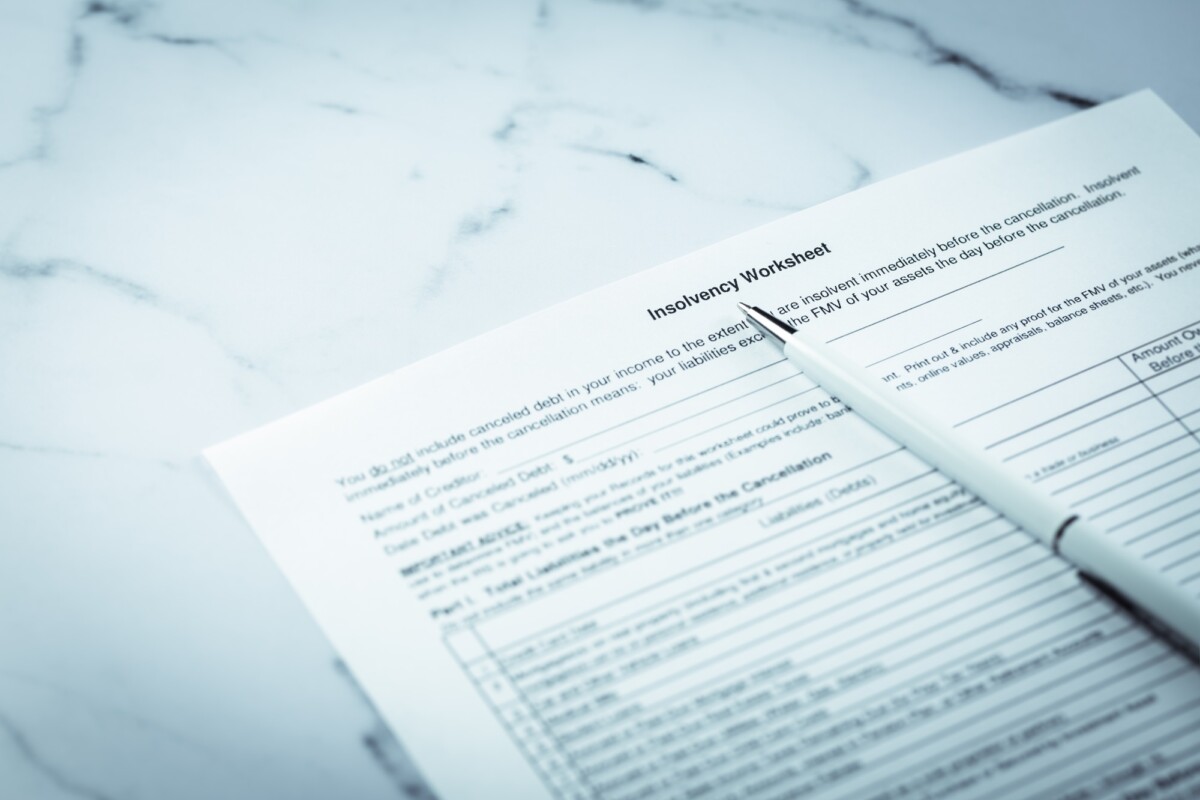What Debts Can Bankruptcy Discharge and What Debts Cannot Be Discharged

Filing for bankruptcy offers financial relief, but understanding what debts can bankruptcy discharge and what debts cannot be discharged? is critical. While some obligations disappear, others persist—knowing the difference helps avoid surprises and plan effectively.
Bankruptcy’s impact varies between Chapter 7 (liquidation) and Chapter 13 (reorganization). Here’s what you need to know about dischargeable versus non-dischargeable debts.
Dischargeable Debts
Bankruptcy typically eliminates:
- Credit card balances and medical bills
- Personal loans (unsecured)
- Past-due utility bills (though current services must be paid)
- Certain lease/rent debts (with exceptions) Rules vary by chapter and individual cases.
Non-Dischargeable Debts
These usually survive bankruptcy:
- Student loans (unless undue hardship is proven)
- Child support/alimony
- Recent tax debts (older than 3 years may qualify)
- Court fines and fraud-related debts
Key Considerations
- Secured debts (mortgages/car loans): Debt may be discharged but collateral is forfeited
- Chapter 7 wipes unsecured debts; Chapter 13 creates repayment plans
- Student loans and tax debts have special rules Consulting a bankruptcy attorney ensures you understand which debts apply to your situation and choose the optimal filing strategy.
Confused About Which Debts Bankruptcy Can Discharge?Get expert guidance tailored to your financial situation. Get a Free Quote Now
What Debts Are Not Dischargeable in Bankruptcy? Key Exceptions Explained
Understanding what debts can bankruptcy discharge and what debts cannot be discharged is crucial for anyone considering filing. Bankruptcy offers a fresh financial start, but not all obligations vanish. Knowing the exceptions helps you plan better and avoid surprises down the road.
Bankruptcy laws categorize debts into dischargeable and non-dischargeable. While dischargeable debts like credit card bills or medical expenses can be wiped out, certain obligations remain your responsibility. Here’s a breakdown of the key exceptions:
1. Student Loans
In most cases, student loans cannot be discharged unless you prove “undue hardship”—a high legal bar. Courts rarely approve this, making student loans one of the toughest debts to eliminate.
2. Child Support and Alimony
Family court obligations, such as child support and alimony, are non-dischargeable. Bankruptcy won’t relieve you of these duties, as they’re considered priority debts.
3. Recent Tax Debts
Older tax debts might be dischargeable, but recent ones (typically within 3 years) aren’t. If you owe taxes, consult a professional to understand your options.
4. Court-Ordered Fines or Penalties
Fines for criminal offenses, traffic tickets, or other court-ordered penalties survive bankruptcy. These are seen as societal obligations, not personal debts.
5. Debts from Fraud or Misrepresentation
If a creditor proves you incurred debt through fraud (e.g., lying on a loan application), it won’t be discharged. Honesty matters in bankruptcy proceedings.
6. Personal Injury Claims from DUI
Debts from causing injury or death while driving under the influence are non-dischargeable. This exception underscores the seriousness of such offenses. While bankruptcy can relieve overwhelming debt, it’s not a one-size-fits-all solution. Always consult a bankruptcy attorney to navigate these complexities and make informed decisions.
7. Homeowners’ Association (HOA) Fees
If you’re part of an HOA, fees accrued after filing bankruptcy may still be due. While pre-filing fees might be dischargeable, ongoing obligations often remain, especially if you keep the property.
8. Government Overpayments
Debts like overpaid unemployment benefits or Social Security payments typically can’t be discharged. The government expects repayment, even after bankruptcy.
9. Debts Not Listed in Your Bankruptcy Filing
Forgetting to include a creditor in your paperwork might leave that debt intact. Always double-check your filings to ensure all dischargeable debts are accounted for.
10. Certain Condo or Co-op Fees
Like HOA fees, some condo or co-op assessments survive bankruptcy, particularly if they’re tied to property ownership post-filing.
Bankruptcy offers relief but doesn’t erase all financial obligations. Knowing what debts can bankruptcy discharge and what debts cannot be discharged helps set realistic expectations. When in doubt, seek legal advice to navigate these rules effectively.
Want to Know What Debts You Can Eliminate Through Bankruptcy?Our legal experts can help you understand your options. Request Your Personalized Quote Today
How Does Bankruptcy Affect Secured vs. Unsecured Debts?
Bankruptcy can be a lifeline for those drowning in debt, but it’s not a one-size-fits-all solution. Understanding what debts can bankruptcy discharge and what debts cannot be discharged is crucial to managing expectations and planning your financial future. This distinction often hinges on whether the debt is secured or unsecured, which we’ll explore in detail.
Bankruptcy treats secured and unsecured debts differently, and knowing the difference can help you navigate the process more effectively. Let’s break down how each type of debt is handled under bankruptcy law.
Dischargeable Debts in Bankruptcy
- Unsecured debts: These are typically dischargeable and include credit card balances, medical bills, and personal loans. Since they’re not tied to collateral, they’re often wiped out in bankruptcy.
- Some secured debts: While bankruptcy can eliminate your personal liability for secured debts (like car loans or mortgages), the lender can still repossess the collateral if payments aren’t made.
Non-Dischargeable Debts in Bankruptcy
- Student loans: These are rarely discharged unless you prove “undue hardship,” a high legal bar.
- Child support and alimony: Family court obligations survive bankruptcy.
- Recent tax debts: Most tax debts older than three years may be discharged, but recent ones usually aren’t.
- Fraudulent debts: If a court finds you incurred debt through fraud, it won’t be discharged. Bankruptcy offers relief, but it’s not a magic wand. By understanding what debts can bankruptcy discharge and what debts cannot be discharged, you can make informed decisions and work toward a fresh financial start.
Secured Debts in Bankruptcy
Secured debts are tied to collateral, such as a house or car, which the lender can repossess if you default. Bankruptcy can affect these debts in two key ways:
- Chapter 7: You may lose the collateral unless you reaffirm the debt (agree to keep paying).
- Chapter 13: You can keep the asset by catching up on payments through a repayment plan. While bankruptcy can eliminate personal liability, it doesn’t remove the lender’s right to the collateral. This means you must either surrender the asset or continue payments to retain it.
Unsecured Debts in Bankruptcy
Unsecured debts, like credit cards or medical bills, aren’t backed by collateral. These are often fully or partially discharged, depending on the bankruptcy chapter:
- Chapter 7: Most unsecured debts are wiped out entirely.
- Chapter 13: You repay a portion based on your disposable income over 3–5 years. However, some unsecured debts, like recent taxes or court-ordered fines, may survive bankruptcy. Always consult a lawyer to understand which debts qualify for discharge.
Struggling with Debt? Find Out Which Debts Can Be DischargedTake the first step toward financial freedom. Get a Quote Here
How LegalCaseReview Can Help You Navigate Dischargeable and Non-Dischargeable Debts
Filing for bankruptcy can be overwhelming when you’re unsure which debts can be eliminated. Understanding what debts can bankruptcy discharge and what debts cannot be discharged? is key to setting realistic expectations for your financial fresh start. Let’s clarify this crucial distinction to help you navigate the process confidently.
Bankruptcy provides relief by eliminating certain debts while leaving others intact. Knowing the difference helps you plan strategically. Here’s a breakdown of dischargeable versus non-dischargeable debts to inform your financial decisions.
Debts Bankruptcy Can Discharge
Most unsecured debts qualify for discharge, including:
- Credit card debt: Both personal and business card balances
- Medical bills: Unexpected healthcare expenses
- Personal loans: Unsecured loans from banks or lenders
- Utility bills: Past-due amounts for services
- Certain tax debts: Older income taxes (typically 3+ years) meeting specific conditions These apply mainly to Chapter 7 bankruptcy, while Chapter 13 reorganizes debts into a payment plan.
Debts Bankruptcy Cannot Discharge
Some obligations typically survive bankruptcy:
- Student loans: Unless you prove undue hardship (difficult standard)
- Child support/alimony: Court-ordered family obligations
- Recent tax debts: Current or recent income taxes
- Court fines: Traffic tickets, criminal restitution
- Secured debts: If keeping collateral like homes or cars Understanding these distinctions helps evaluate bankruptcy’s pros and cons. Legalcasereview.com clarifies these complexities so you know what to expect.
How LegalCaseReview.com Simplifies Bankruptcy
We make the process manageable by offering:
- Clear explanations of discharge rules
- Personalized financial assessments
- Practical filing tools Our resources empower you to approach debt strategically.
Why This Knowledge Matters
Misunderstanding discharge rules can lead to:
- Unpreparedness for persistent student loans
- Risk of losing secured assets. We help avoid these pitfalls through education.
Your Next Steps
After identifying dischargeable debts, you can:
- Prioritize non-dischargeable debt repayment
- Consider alternatives like debt settlement
- Consult bankruptcy attorneys. We connect you with professionals to streamline your financial recovery.
Need Help Understanding Bankruptcy Discharge Rules?Speak with a qualified attorney today. Get Your Quote Now
Frequently Asked Questions (FAQs)
What types of debts can bankruptcy discharge?
Bankruptcy can typically discharge unsecured debts such as credit card balances, medical bills, personal loans, and some utility bills.
Which debts cannot be discharged in bankruptcy?
Certain debts are generally non-dischargeable, including most student loans, child support and alimony payments, recent tax debts, and debts incurred through fraud or intentional wrongdoing.
Can bankruptcy discharge secured debts like mortgages or car loans?
Bankruptcy can discharge the personal liability for secured debts, but you may still be required to surrender the collateral (home or car) unless you continue making payments under a repayment plan.
Are all tax debts non-dischargeable?
Not all tax debts are non-dischargeable. Some older income tax debts may be discharged if they meet specific criteria, but recent tax obligations usually cannot be wiped out.
How does Chapter 7 differ from Chapter 13 regarding debt discharge?
Chapter 7 typically discharges most eligible debts quickly after liquidation of assets, while Chapter 13 involves a repayment plan and discharges remaining eligible debts after completion of the plan.
Can I discharge debts from lawsuits or judgments in bankruptcy?
Yes, many debts from lawsuits or judgments can be discharged unless they are related to fraud, willful injury, or certain types of fines.
How soon after filing bankruptcy can debts be discharged?
In Chapter 7, discharge usually occurs about 3 to 6 months after filing. In Chapter 13, discharge happens after completing the repayment plan, typically 3 to 5 years.
If you want to know exactly which debts you can eliminate and which you cannot, get expert advice now by requesting a quote from our legal specialists. Take control of your financial future today!



